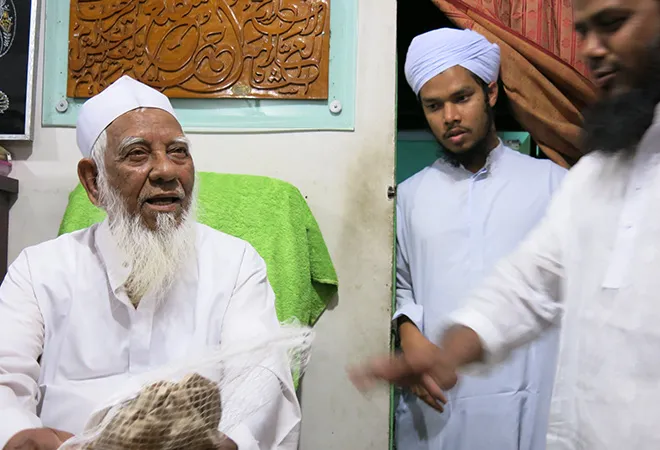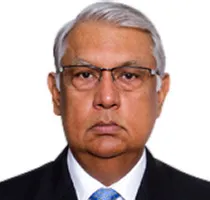The explosion of communal violence during the auspicious Durga Puja season in Bangladesh surprised the government. It is now clear that the violence was perpetrated by Islamist fanatics, most probably belonging to Shibir, the youth wing of the pro-Pakistani Islamist party, the Jamaat-e-Islami (JeI). The Jamaat attained notoriety by collaborating with the Pakistani army in committing genocide during the war of liberation in 1971. Members of two other Islamist organisations, the Islami Andolon and the Hefazet, are also suspects.
While Prime Minister (PM) Sheikh Hasina has promised to hunt down the perpetrators, the police were slow to react in the initial phase when the violence broke out. Hindu leaders have also alleged that some Awami League (AL) leaders have been complicit in anti-Hindu violence over the years. Hasina cannot wish away these allegations. Fanatics, indeed, have a well-planned policy of infiltrating the party in power.
The last instance of such large-scale communal violence was in 2001, when the Bangladesh National Party (BNP), led by Khaleda Zia, won the election, in alliance with the JeI. BNP and JeI cadres organised the anti-Hindu attacks, before the Durga Puja season, just like they did in 2021.
PM Atal Bihari Vajpayee sent his national security adviser Brajesh Mishra as a special envoy to engage with the new government. Mishra conveyed India’s concern over communal violence to Zia. It had its effect and the violence stopped. As deputy high commissioner, I was an eyewitness to these events.
Apart from the ethnic cleansing of “kaffirs” from an Islamic country, the collateral benefit of grabbing properties and land belonging to the Hindu community was, and remains, a strong motivating factor in Bangladesh. Dhaka University academic, Abul Barakat, in his seminal work on the dispossession of land, has estimated that around 600-700 Hindus are uprooted from their land and migrate to India every day.
Barakat estimates that in the next 30-40 years, there will hardly be any Hindus left in Bangladesh. Hindus remain soft targets, as they are dispersed in small numbers all over Bangladesh. Hindus have been reduced to less than 10% of the population from around 29% in 1947.
Barakat estimates that in the next 30-40 years, there will hardly be any Hindus left in Bangladesh. Hindus remain soft targets, as they are dispersed in small numbers all over Bangladesh. Hindus have been reduced to less than 10% of the population from around 29% in 1947.
Bangladesh is known as a moderate Islamic country. There is a strong and committed secular section, but this is dwindling in numbers. Intolerance is the default position of fanatic Islamists who have gained strength over the years, through political patronage, the inflow of Gulf money, indoctrinated expatriates returning home and fed on an anti-India narrative by the Islamist organisations. These outfits have weaponised blasphemy, and have demanded transforming Bangladesh into an Islamic State, ruled as per the Sharia.
PM Sheikh Hasina reintroduced secularism into the Constitution, but avoided expunging Islam as the State religion. Islamists have been unhappy with this, as well as her crackdown on extremists who have killed secular bloggers and were responsible for terrorist incidents.
The orchestrated communal violence seems to be a deep-rooted conspiracy. The JeI has been seething in anger over the trial and execution of its leaders for war crimes, committed in 1971, and is thirsting for revenge.
Islamist organisations are determined to embarrass Hasina and derail her policies. They are jubilant at the Taliban takeover, and may well have been encouraged by Pakistan’s Inter-Services Intelligence (ISI), which has close links with JeI and the Islamists. Pakistan and the Islamists are extremely unhappy with Hasina’s close ties with India.
India has reacted cautiously, because bilateral ties have prospered under Hasina. Security and intelligence cooperation has delivered dividends that have built mutual trust and confidence. Hasina has obliquely passed some blame on to India, saying that nothing untoward should happen there that impacts the situation in her country. She is implying that anti-Muslim incidents in India encourage the Islamists to exact revenge on Hindus in Bangladesh. Islamists need no excuse for furthering their agenda. They will invent one and trigger violence as they have done this time around. Bangladesh has to take ownership and responsibility for the failure of law and order.
This commentary originally appeared in The Hindustan Times




 PREV
PREV


